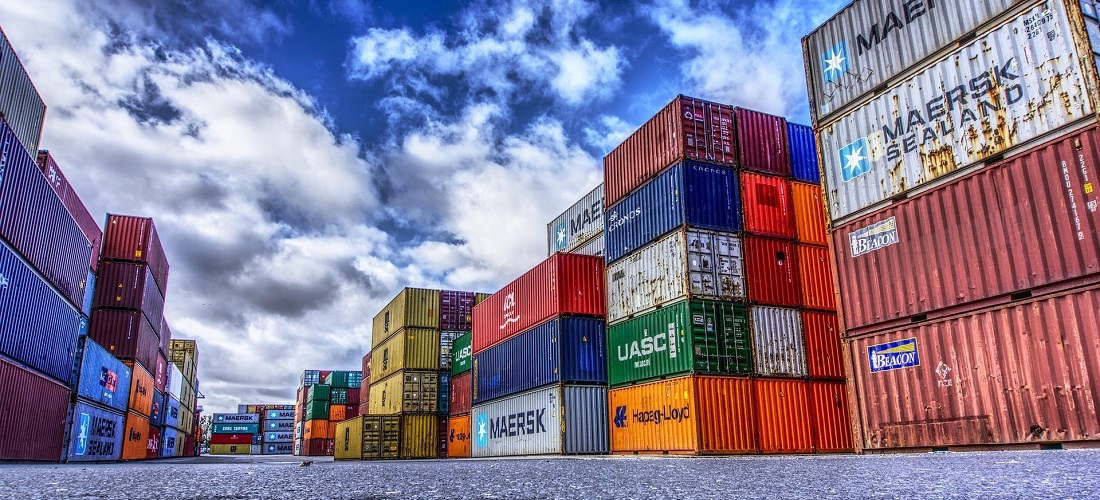
Brazil´s trade balance registers surplus of US$1.4 billion in second week of August
Aug, 17, 2020 Posted by datamarnewsWeek 202033
Data released on Monday, August 17, by the Foreign Trade Secretariat (Secex) of the Economy Ministry indicates that the Brazilian trade balance registered a surplus of US$1.395 billion and a current account of US$6.894 billion, in the second week of August 2020 – with five working days – as a result of exports worth US$4.145 billion and imports of US$2.75 billion.
In the year so far, exports totaled US$129.781 billion and imports, US$96.407 billion, with a positive balance of US$33.374 billion and a trade flow of US$226.188 billion.
Fall in imports
On the export side, compared to the daily average until the second week of August 2020 (US$888.87 million) with that of August 2019 (US$894.07 million), there was a 0.6% dip, due to the decrease in sales in the mining industry (-17.4%) and in manufacturing (-3.6%). On the other hand, there was an increase seen in the agricultural sector (+ 31.2%).
The drop in exports was mainly driven by the decrease in sales of the following products from the extractive industry: Crude oil or bituminous minerals (-35.7%); copper ores and concentrates (-75.2%); iron ore and concentrates (-2.1%); stone, sand and gravel (-52.8%) and aluminum ores and concentrates (-14.9%). Regarding the products from the manufacturing industry, the drop in exports was mainly driven by non-electric engines and machines and their parts, except piston engines and generators (-75.8%); aircraft and other equipment, including parts (-77.1%); cellulose (-22.2%); passenger car vehicles (-41.2%) and alumina – aluminum oxide-, except artificial corundum (-39.7%).
On the import side, the daily average until the second week of August 2020 (US$550.05 million) was 22.3% below the August average of last year (US$707.72 million). During the same time period comparison, spending on agriculture and Livestock fell (-3.3%), as did manufacturing (-19.7%) and also the mining industry (-77.8%).
The fall in imports was mainly driven by the decrease in spending on the following agricultural products: Latex, natural rubber, balata, gutta-percha, guaiúle, chicle and natural gums (-53.4%); whole fish alive, dead or chilled (-22.1%); vegetables, fresh or chilled (-19.9%); barley, unground (-43.5%) and unground corn, except sweet corn (-29.9%). In the manufacturing industry, the fall in imports occurred due to the decrease in expenses with the purchase of civil engineering installations and equipment and builders, and their parts (-90.0%); petroleum or mineral fuel oils, except crude oils (-49.7%); fertilizers or chemical fertilizers, except crude fertilizers (-27.1%); passenger car vehicles (-61.4%) and automotive vehicle parts and accessories (-17.9%). Finally, in the extractive industry, the fall in imports is due to the decrease in spending on coal, even in powder, but not agglomerated (-72.7%); crude petroleum or bituminous mineral oils, raw (-80.3%); natural gas, liquefied or not (-100.0%); copper ores and concentrates (-100.0%) and other ores and concentrates of base metals (-47.6%).
-
Blog News (ENG)
Nov, 17, 2023
0
Agrícola Famosa assembles a fleet of ships to export fruit to Europe
-
Ports and Terminals
Dec, 18, 2020
0
São Francisco do Sul port to lease 2 port facilities
-
Other Logistics
Feb, 18, 2019
0
SP launches its first highway concessions under Doria government
-
Ports and Terminals
Apr, 05, 2019
0
Codesp talks with Suzano and Eldorado about exporting pulp from Libra Terminal


